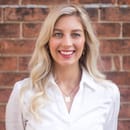This just might be one of Instagram’s smartest moves.
Since the introduction of “beauty filters” by Snapchat, Instagram has slowly but surely followed in its lead, and has since integrated these filters into Instagram stories for everyone to use.
That is, until, the recent ban of “plastic surgery” filters by Instagram.
According to Spark AR, more than one billion people have used its face-alteration filters across social media in the past year. Filters have changed and shaped modern-day photography. From what used to be hours spent meticulously editing pictures using programs like Lightroom and Photoshop, apps like Instagram and VSCO, make it nearly effortless to get an alluring image with just the tap of a finger.
But to what lengths should these filters go?
Snapchat first begun with simple, fun overlay filters such as the dog filter, face swapping, and of course the bunny (anyone remember?). These filters were just the beginning of an even larger agenda. From seemingly innocent “smoothing” filters, it didn’t take long for the development of ones that completely alter your face.
Instagram quickly hopped on the bandwagon, and soon enough, boundaries were crossed.
There is no concrete definition of “beauty”. What one person or culture deems beautiful can be completely distinct from one to the next. It seems as though each year, our definition of beauty changes. Snapchat created a whole new definition of beauty, and we’re all suckers to it. I’ll admit it, I love using snapchat filters. However, it’s shocking just how much they can change your face. Sharper jawlines, pointy chins, porcelain skin, bigger lips, and bluer eyes. Why do we adhere to this near-impossible standard?
It makes us want to be something we’re not. It homogenizes us and conceals our unique differences, and perpetuates an ideal form of beauty.
We stress the idea that we should celebrate our differences and embrace all shapes, sizes, skin tones–and then we have the media promoting one ideal of beauty that we all fall into, and subconsciously swallow. If we compare ourselves to an artificially mandated archetype, how can we ever measure up to this box we enclose ourselves in?
The more I go on Instagram, the more I see girls looking increasingly the same, and I can’t help but wonder how this makes other girls feel about themselves, especially those too young to understand or recognize the use of filters or other photo editing practices.
The nascent Snapchat and Instagram filters are not too controversial. The introduction of making your own filters, however, has gotten out of hand. A few specific filters on Instagram have made girls (to put it lightly) look alien-like. The most shocking thing about this is that many people continue to use them, as if they can not blatantly see how ridiculous it all looks.
This ban placed on extreme face altering filters is a step in the right direction. I see it as a proclamation from Instagram saying “hey, you’re beautiful the way you are”. Filters can be fun and can be a healthy part of the user experience, but it’s important for girls to feel that they don’t have to look a certain way, and can embrace their natural beauty.
With that being said, we have so much further to go. A simple ban isn’t going to erase the homogenous idea of beauty that the media has created, but it does start the conversation. Eventually, the hope is that people realize that striving for this homogeneity is not healthy and see the need for change.



